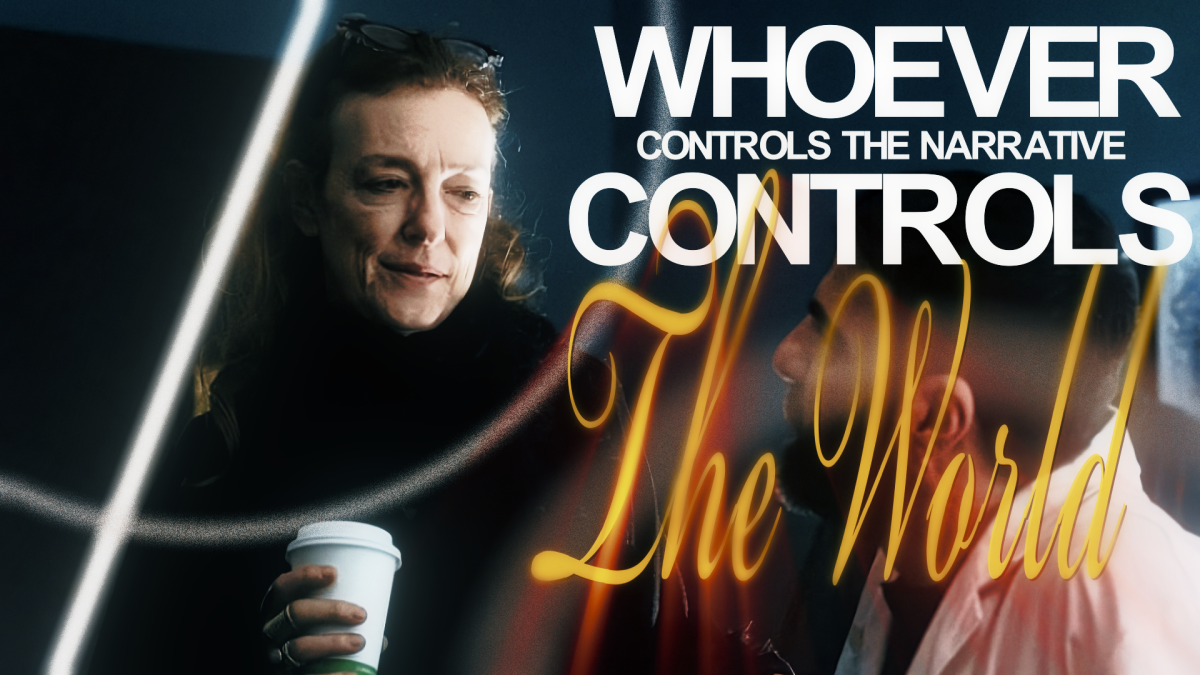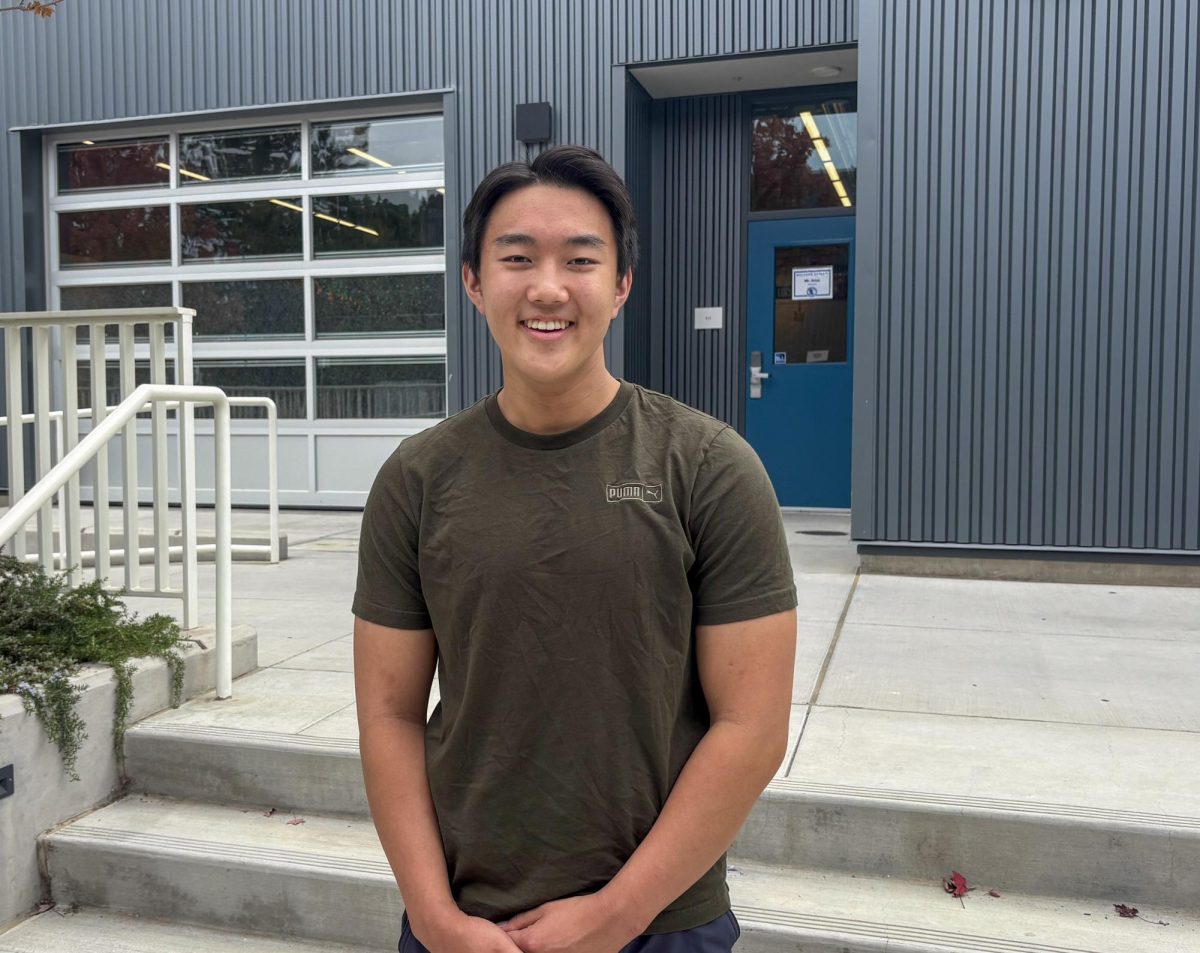As part of Videography Club’s guest speaker series, nationally acclaimed film director Deborah Kampmeier spoke at its lunch meeting on March 31. Kampmeier, who directed films such as Star Trek: Picard (2020), The Gilded Age (2022), explained her creative process and delivered a powerful message to young creatives:
“Whoever controls the narrative controls the world,” Kampmeier said. “We need your voice. My voice. Everyone’s voice. And it doesn’t matter how you get it out — you just have to get it out.”
Kampmeier’s talk was one of the many guest speakers hosted by Videography Club. On Mondays, club president junior Carissa Lai is occasionally able to bring big time filmmakers and artists to inspire students and answer questions about their industries.
“Most students in the club aren’t aspiring filmmakers, or directors,” co-president junior Dorie Xie said. “The main purpose of our club in general is just to give exposure to the video industry, and to tell people what it’s really about. There’s so much ‘unknown’ in filmmaking industries because they intentionally hide it from you.”
Behind the scenes, it takes a lot of effort to get any response, let alone making time for whole interviews.
“I tried every single email,” Carissa said. “Half of them didn’t even work, and at some point I would question if these were even real emails.”
Just for this specific meeting, Carissa contacted over 30 people from Pixar, old Pixar heads, and filmmakers from the Bay Area.
“I heard Kampmeier was local, and lo and behold, she was the only one that emailed back,” Carissa said.
Ultimately, Carissa hopes that by hosting these accomplished creatives, she’s able to broaden the perspectives of highschool students.
“The amount of careers that we’ve been exposed to are not very broad,” Carissa said. “By bringing in these diverse perspectives from film and entertainment I hope to open people’s minds to different careers and share what other people’s experiences have been in these industries.”
During her presentation, Kampmeier, known for her emotionally charged storytelling, opened with the difficult path that led her to filmmaking—one that began with a cello.
“I had abuse in my childhood, and I didn’t have words for it,” Kampmeier said. “Playing the cello was my way of expressing that. Then I found acting, which got me closer — I had words. But it still wasn’t my story. So I started writing. Filmmaking became the space where I could finally express my truth.”
Without going to film school or having professional writing experience, Kampmeier forged her own path.
“I crowdfunded before crowdfunding existed,” Kampmeier said. “I wrote letters, got $1,600 in two weeks, rented a camera, and shot a film. It was all just following passion.”
Passion, she believes, is the real key.
“You go as hard as you possibly can after what you want,” Kampmeier said. “I went after acting with everything I had. That’s how I found filmmaking.”
At 17, Kampmeier moved to New York to study acting at the National Shakespeare Conservatory. She made her first short film, not to become a director, but to get an acting job from filmmaker Wim Wenders. This short film, which she wrote, directed, and starred in, changed her life.
“In the process of making that short film, I realized I wanted to become a filmmaker,” Kampmeier said, “I went after acting as hard as I possibly could and I ended up discovering I was meant to be a filmmaker.”
Chasing this passion didn’t guarantee ease, but it was a risk she was willing to take.
“Six years ago, I was living month to month, barely able to pay rent,” Kampmeier said. “But to not make art? That would’ve been a greater risk. I would’ve emotionally imploded. People ask me how I deal with all the no’s. I faced a lot of rejection—but eventually the “f*ck you” in me got stronger than the rejection.”
Her advice to artists: show up every day.
“Wake up, grab your coffee, and write three pages,” Kampmeier said. “Doesn’t matter what it is. If you’re stuck, write, ‘What I really want to say is…’ If you’re really stuck, curse on the page for three pages. Just make the commitment.”
Along with this, she gives advice on how to use art in an increasingly technological world.
“We’re living in a digital age that disconnects us from our senses,” Kampmeier said. “Art reminds us to stay alive — to smell, taste, feel, and really see. You can be an artist as a chef, a gardener, or even an accountant. It’s about how you live.”
Kampmeier channels her energy not only into her films, but also social change. Her newest project is the New Myths Film Fund, a media platform aiming to raise $1 billion to fund 22 feature films by female filmmakers.
“Women enter film school at the same rate as men, but they don’t come out directing,” Kampmeier said. “They drop off — because of money. We need financing for women. That’s the bottom line.”
“Independent voices are what save us — not the herd,” Kampmeier said. “We need to tell our individual truths, and we need everyone’s voice.”










